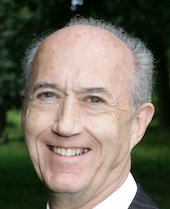Dr. Sylvia McLain has been a field biologist, a fisheries field technician, a English teacher in China, an evolutionary biology technician, a high school science teacher, an inorganic chemist, a condensed matter physicist and is currently pharmaceutical science research fellow at King’s College London. She also blogs at Girl, Interrupting about science, politics and other things that come to mind.
I have worked in many areas of science, from conservation field biology to condensed matter physics. The single most common questions I have been asked across all disciplines are ‘Why is this important?’, ‘Why should I care?’ or even sometimes ‘Why do my taxes pay for this?’
We live in a technological age where there is often a misconception about the difference between science and technology and this is one of the sources of the question ‘Why is this useful?’. Societally we, perhaps, see things as useful only if they improve our lives in the short term: a bigger faster computer, a cure to cancer, a cheaper faster way to deliver electricity.
Often what is missing in this in this picture is the science that goes on behind it. Scientific progress is not linear and not very predictable, and is not connected with technology in a straight-forward manner. We know so little about the natural and physical world around us and science is a way to answer these questions one tiny step at at time. As scientists on a fundamental level, we increase, albeit very slowly, the knowledge of the world, which is, in its on right a beautiful and useful thing. And important leaps forward that do change our lives often occur as an off-shoot of science.
All technology is based on science. And the way that science evolves to technology is always a variegated path. Without Thomson searching for fundamental components of atoms and discovering the electron, we wouldn’t have electronics. Without Tim Berners-Lee we wouldn’t have the internet communication we find so useful today. Thomson wasn’t looking at making a model cell phone and Tim Berners-Lee was a CERN physicist that was only concerned with sharing data between scientists at different places around the world. But look at the benefits. Even if you try to do directed research to build technology, the structure of science is such that ‘discoveries’ come from the most unexpected places.
And this is, in part, why I am fascinated by science and why, even on the smallest level, it’s a part of being human. Humans have the capacity to ask WHY? Even the question of why is this important? is reflective of this and science is one way of answering the question why? about the physical and natural world. And that is a an amazing, uniquely human thing.
Read More »








